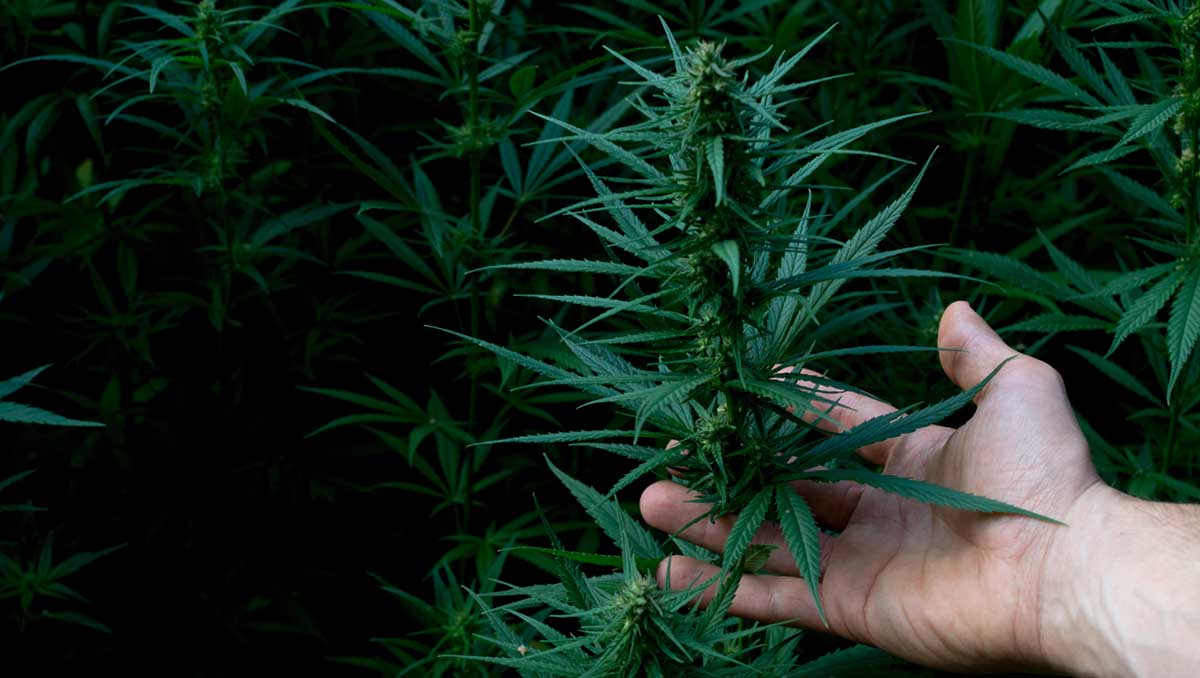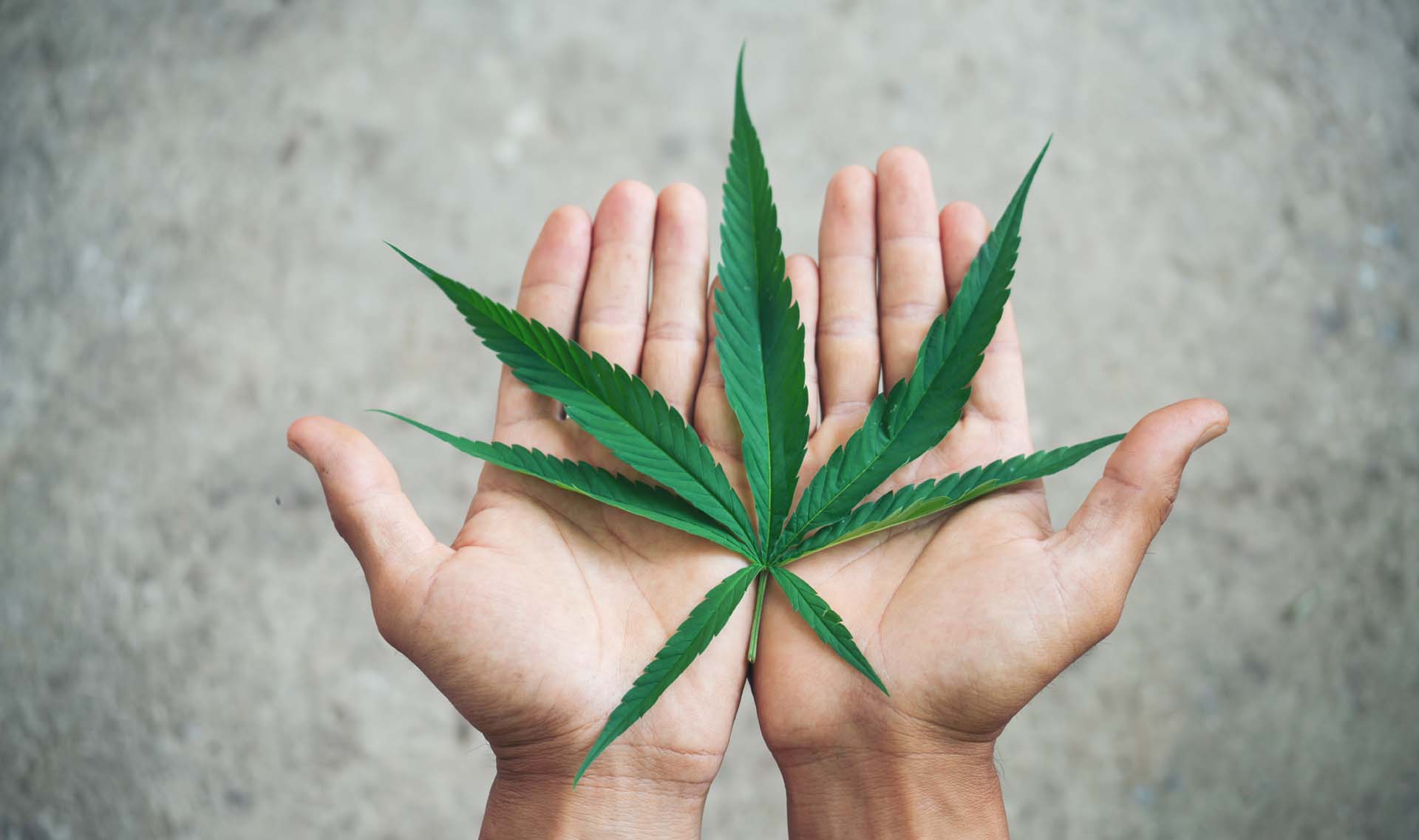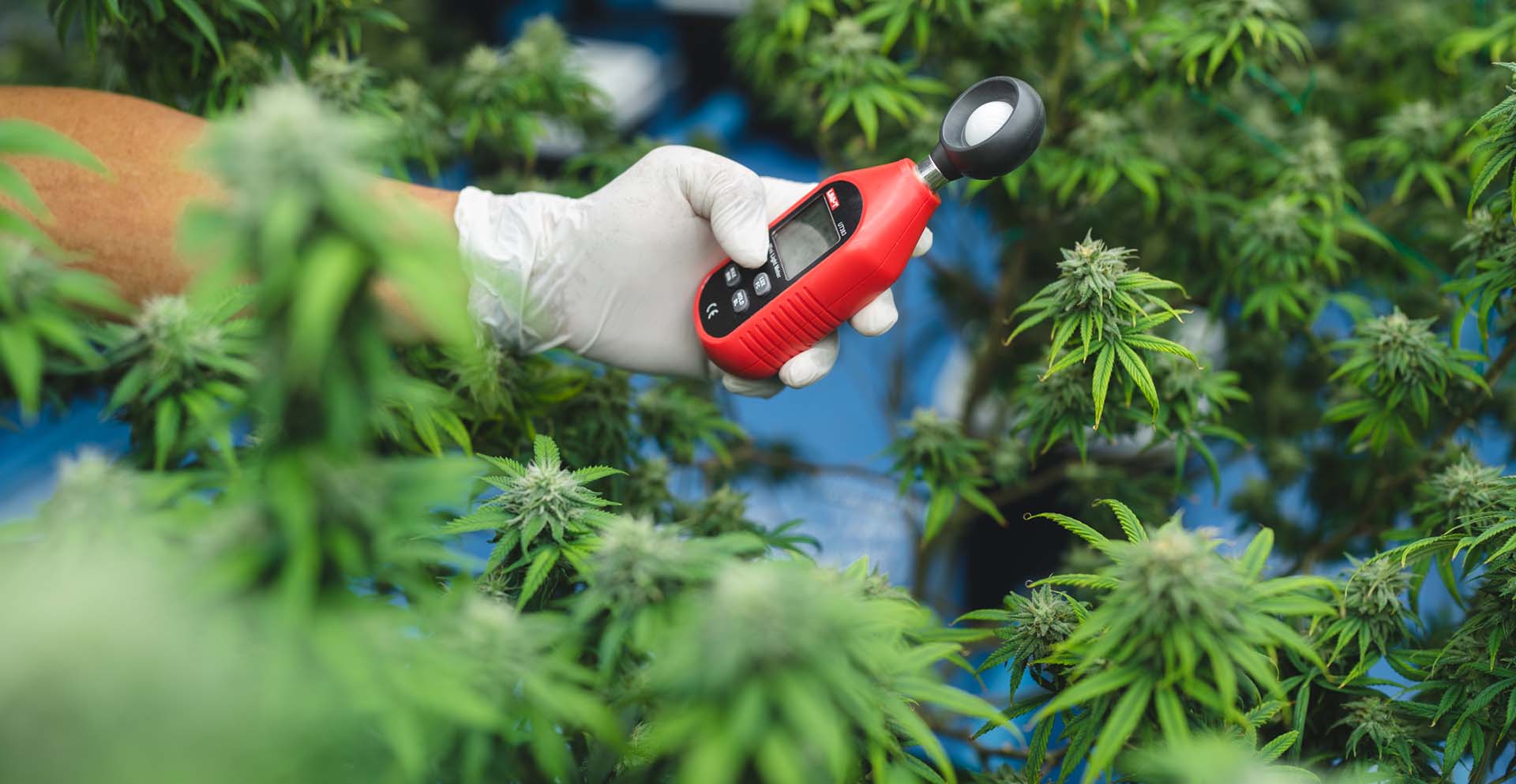Now accepting clients for New York, Maryland, Delaware, and Missouri! Please contact us if you have questions.
How to Prepare for Psilocybin Business Opportunities
Table of Contents
Introduction
In recent years, there has been a surge of interest in psilocybin, the psychoactive compound found in certain species of mushrooms. With growing acceptance of psychedelic mushrooms and shifting attitudes towards psychedelics, psilocybin is emerging as a potential business opportunity. This article aims to provide guidance on how to prepare for psilocybin business opportunities, covering various aspects from legality and regulations to marketing and financial considerations.
Understanding Psilocybin
Psilocybin is a naturally occurring compound found in certain species of mushrooms, often referred to as “magic mushrooms” or “shrooms.” It is classified as a psychedelic or hallucinogenic substance due to its ability to induce profound alterations in perception, cognition, and consciousness when consumed.
The effects of psilocybin are primarily attributed to its interaction with the serotonin receptors in the brain. Serotonin is a neurotransmitter that plays a crucial role in regulating mood, emotions, and cognition. Psilocybin binds to specific serotonin receptors, particularly the 5-HT2A receptors, leading to various changes in brain activity.
When ingested, psilocybin magic mushrooms are rapidly converted into its active form, psilocin, which acts as a potent agonist (activator) of the serotonin receptors. This activation triggers a cascade of neural events that ultimately result in altered perception and consciousness. Users commonly report visual distortions, changes in thought patterns, and a heightened sense of introspection and self-awareness.
Psilocybin’s effects can vary depending on several factors, including the dose consumed, the individual’s mindset and expectations of psychedelic drugs, the setting in which it is taken, and the individual’s unique brain chemistry. The experience, commonly known as a psychedelic trip or “trip,” can range from gentle and introspective to intense and profound.
Beyond its recreational use, psilocybin has gained attention for its potential therapeutic applications. Research suggests that psilocybin-assisted therapy may be beneficial in treating various mental health conditions, including depression, anxiety, addiction, and post-traumatic stress disorder (PTSD). The substance has shown promise in facilitating profound emotional breakthroughs, enhancing introspection, and promoting long-lasting positive changes in individuals.
However, it’s important to note that psilocybin is classified as a Schedule I controlled substance in many countries, including the United States, meaning it is illegal to possess, produce, or distribute. There are, however, ongoing efforts to reevaluate its legal status and explore its therapeutic potential through clinical research and trials.
For individuals interested in venturing into the psilocybin business, a thorough understanding of psilocybin’s properties, effects, and potential benefits is crucial. This knowledge forms the foundation for navigating the legal and regulatory landscape, developing responsible and safe practices, and exploring potential business opportunities within the emerging field of psychedelic medicine.

The Growing Interest in Psilocybin Business Opportunities
In recent years, there has been a significant surge in interest surrounding psilocybin and its potential business applications. This growing interest in psychedelic compounds can be attributed to several factors, including the increasing body of scientific research, changing societal attitudes towards mental health issues, and the recognition of alternative therapies as viable options for treatment and personal development.
One key driver of the interest in psilocybin business opportunities is the expanding field of psychedelic therapy and research. Scientists and researchers have been conducting studies to investigate the therapeutic potential of psilocybin for various mental health disorders and conditions. The results have been promising, with preliminary evidence suggesting that psilocybin-assisted therapy can have profound and lasting positive effects on individuals suffering from depression, anxiety, addiction, and PTSD. These findings have generated excitement and optimism within the medical and scientific communities, spurring further research and exploration of the potential applications of psilocybin.
Moreover, there has been a notable shift in societal attitudes towards mental health and alternative therapies. Traditional approaches to both mental illness and health treatment, such as pharmaceutical medications, have limitations and can sometimes yield unsatisfactory results. As a result, people are increasingly open to exploring alternative treatment options and psychedelic treatments that offer new perspectives and potential breakthroughs. Psilocybin, with its ability to induce introspection, expand consciousness, and promote emotional healing, has captured the attention of individuals seeking innovative approaches to mental health and personal growth.
Investors and entrepreneurs have recognized the commercial potential of the psilocybin industry. As the legal and regulatory landscape surrounding the psychedelics industry evolves, there is growing anticipation that psilocybin-based therapies and products may become more accessible and accepted. This anticipation has led to the emergence of startups and companies focused on developing psychedelic medicines, therapeutic services, and consumer products. Investors are keen to support these ventures, seeing the opportunity to be at the forefront of a potentially transformative industry.
The exploration of psilocybin business opportunities extends beyond traditional healthcare settings. There is also a growing interest in the intersection of psilocybin with personal growth, spirituality, and well-being practices. Psilocybin retreats, wellness centers, and educational programs are gaining popularity, offering individuals the opportunity to embark on guided experiences for self-discovery and personal transformation. This broader market appeal creates additional avenues for drug development, entrepreneurial endeavors and innovative business models.
Overall, the combination of scientific advancements, shifting attitudes towards mental health, and the recognition of alternative therapies has created a favorable environment for exploring psilocybin business opportunities. Entrepreneurs, investors, and researchers are capitalizing on this growing interest to shape the emerging psilocybin industry, with the aim of both creating commercial success and contributing to the well-being and personal development of tens of millions of individuals.
Legality and Regulations
When exploring psilocybin and recreational marijuana business opportunities, it is essential to carefully navigate the legal landscape and understand the regulations associated with this substance. Psilocybin is classified as a Schedule I controlled substance in many countries, including the United States. This classification indicates that psilocybin is considered to have a high potential for abuse and no accepted medical use. As a result, it is generally illegal to possess, produce, or distribute psilocybin in its pure form.
However, it is important to note that the legal status of psilocybin is evolving, with increasing recognition of its potential therapeutic benefits. In certain jurisdictions, exceptions or legal frameworks have been established to facilitate research, medical use, or decriminalization of psilocybin. For example, in some countries and states, there are specific regulations that allow for the controlled use of psilocybin in clinical trials or as part of regulated therapeutic practices. Oregon and Denver are two such jurisdictions.
In recent years, there has been a growing movement to reform psilocybin laws and regulations. Advocacy groups, scientific organizations, and patient communities have been actively promoting the reevaluation of psilocybin’s legal status based on emerging scientific evidence and its potential therapeutic applications. This has led to legislative efforts and ballot initiatives aimed at decriminalizing or legalizing psilocybin for medical or recreational use in certain jurisdictions.
It is crucial for individuals interested in the psilocybin business to stay informed about the legal status and regulatory changes related to psilocybin in their respective regions. This can be done by monitoring legislative developments, following regulatory agencies, drug enforcement administration and government bodies involved in drug policy, and consulting with legal experts knowledgeable in psychedelic substances.
In addition to national or regional laws, it is important to consider international regulations when operating within the psilocybin industry. Psilocybin is controlled under international drug control treaties, such as the United Nations’ Single Convention on Narcotic Drugs. These treaties impose restrictions on the production, distribution, and use of psilocybin globally. Compliance with these international agreements is essential when engaging in cross-border activities or considering the export/import of psilocybin-related products.
As the field of psychedelic medicine and psychedelic research centers, continues to evolve, it is anticipated that legal and regulatory frameworks will adapt to accommodate the growing interest in psilocybin. This may include the development of clearer guidelines for research, the establishment of licensing and regulatory systems for medical or therapeutic use, or the decriminalization or legalization of psilocybin for broader purposes. Staying up-to-date with these legal and regulatory changes is vital for individuals seeking to engage in psilocybin business opportunities in a responsible and compliant manner.

Research and Education
In order to thrive in the psilocybin industry, it is crucial to prioritize research and education. By staying informed about the latest scientific advancements, clinical trials, and therapeutic applications of psilocybin, individuals and businesses can make informed decisions, foster innovation, and contribute to the overall growth and credibility of the psychedelic industry. The Multidisciplinary Association for Psychedelic Studies (MAPS) is a great resource to keep up to date on research and legality.
Research plays a vital role in expanding our understanding of psilocybin. Through scientific studies, researchers investigate the pharmacological properties, mechanisms of action, and potential therapeutic benefits of psilocybin. These studies help uncover the physiological, psychological, and neurobiological effects of psilocybin, providing valuable insights into its potential applications in mental health, personal growth, and well-being.
By keeping up with the latest research findings, individuals and businesses in the psilocybin industry can make informed decisions about product development, therapeutic protocols, and market strategies. Understanding the scientific underpinnings of psilocybin enables industry stakeholders to create evidence-based approaches and products that align with the needs and expectations of consumers, regulators, and healthcare professionals.
Clinical trials are another important aspect of psilocybin research. These trials evaluate the safety and efficacy of psilocybin-assisted therapies for specific mental health conditions, such as depression, anxiety, and addiction. The outcomes of these trials provide critical data to support regulatory approvals, inform treatment protocols, and shape industry standards. Following the progress of clinical trial and results of clinical trials allows individuals and businesses to stay at the forefront of developments in therapeutic applications and contribute to the responsible and ethical use of psilocybin.
Education is equally important in the psilocybin industry. As the field evolves and gains recognition, it is essential to foster a well-informed and knowledgeable community. This includes educating professionals, such as therapists, counselors, and healthcare providers, about the potential benefits, risks, and responsible use of psilocybin. Building a strong knowledge base ensures that practitioners are equipped to provide safe and effective guidance to individuals engaging in psilocybin-assisted therapies.
Moreover, public education is crucial to dispel myths, reduce stigma, and promote responsible use of psilocybin. By providing accurate and evidence-based information, individuals and organizations can contribute to a more informed and understanding society. This, in turn, facilitates discussions, policy reform, and public acceptance of psilocybin as a potential tool for personal growth, healing, and well-being.
Investing in research and education not only benefits individual businesses but also contributes to the advancement and legitimacy of the psilocybin industry as a whole. By promoting rigorous research, fostering a well-informed community, and advocating for responsible practices, the industry can establish itself as a reputable and respected field that prioritizes safety, efficacy, and ethical standards.
Developing a Business Plan
When embarking on a psilocybin business venture, it is essential to develop a well-crafted business plan. A business plan serves as a roadmap, outlining your goals, strategies, and the steps needed to establish and grow your psilocybin business successfully. Here are key elements to consider when developing your business plan:
Target Market: Identify your target market and understand their needs, preferences, and demographics. Determine who your ideal customers are, such as individuals seeking alternative therapies, mental health professionals, or wellness enthusiasts. Tailor your products, services, and marketing strategies to cater to this specific audience.
Unique Selling Proposition (USP): Define your unique selling proposition, which sets you apart from competitors. Consider what differentiates your business from others in the market. This could include factors such as innovative product formulations, exceptional customer service, evidence-based therapeutic protocols, or a focus on sustainability and ethical practices.
Goals: Outline your short-term and long-term goals. Short-term goals may include product development, building partnerships, and establishing a customer base. Long-term goals could involve expanding into new markets, conducting research collaborations, or becoming a recognized leader in the psilocybin industry. Set measurable targets and timelines to track your progress.
Product and Service Offerings: Define the specific psilocybin products or services you plan to offer. This could include psilocybin-assisted therapy programs, wellness retreats, educational workshops, or the development of psilocybin-based pharmaceuticals. Consider the unique benefits and value your products or services provide to your target market.
Customer Acquisition Strategies: Determine how you will attract and retain customers. This could involve marketing and advertising strategies, such as online campaigns, partnerships with healthcare professionals or wellness centers, or collaborations with influencers and thought leaders in the field. Additionally, consider how you will build trust and establish credibility in the psilocybin industry.
Regulatory Compliance: Understand the legal and regulatory requirements associated with psilocybin and ensure your business operates in compliance with applicable laws. Stay updated on any changes in regulations and adapt your business practices accordingly.
Revenue Streams: Identify the various revenue streams for your business. This could include product sales, service fees, licensing agreements, or research collaborations. Consider potential partnerships or strategic alliances that can help diversify and strengthen your revenue streams.
Financial Projections: Develop financial projections, including startup costs, operating expenses, and revenue forecasts. This will help you determine your funding needs and create a realistic financial plan. Consider factors such as production costs, marketing expenses, research and development investments, and projected sales volumes.
Risk Assessment: Assess potential risks and challenges that may impact your business. This could include regulatory uncertainties, market competition, changes in public perception, or supply chain disruptions. Develop contingency plans to mitigate risks and ensure the long-term sustainability of your business.
Monitoring and Evaluation: Establish mechanisms to track and evaluate the performance of your business. Regularly review key performance indicators (KPIs), such as sales metrics, customer satisfaction, and market share. Adjust your strategies as needed based on the insights gained from monitoring and evaluation.
Developing a comprehensive business plan provides a solid foundation for your psilocybin business. It enables you to articulate your vision, set clear objectives, and make informed decisions as you navigate the dynamic landscape of the psilocybin industry. Continuously review and update your business plan as your business evolves to ensure its relevance and effectiveness.

Cultivation and Production
Cultivation and production are integral components of the psilocybin business, as they directly impact the quality, consistency, and availability of psilocybin mushrooms. Successfully cultivating psilocybin mushrooms requires careful consideration of several factors, including infrastructure, equipment, expertise, and cultivation practices. Here are key aspects to focus on when it comes to cultivation and production:
Infrastructure and Equipment: Establishing a suitable infrastructure is crucial for psilocybin mushroom cultivation. This may involve setting up a dedicated facility or growing space that provides optimal environmental control. Consider factors such as lighting, ventilation, temperature regulation, and humidity control systems. Invest in high-quality equipment such as growing containers, substrate preparation tools, sterilization equipment, and monitoring devices to ensure optimal growing conditions.
Substrate Preparation: Psilocybin mushrooms typically grow on a substrate, which serves as the nutrient-rich medium for their growth. Research and select the appropriate substrate for your chosen mushroom species. Common substrates include grain-based substrates (such as rye, wheat, or millet), supplemented sawdust, or a combination of both. Proper preparation of the substrate, including sterilization or pasteurization techniques, is crucial to minimize the risk of contamination and promote healthy mushroom growth.
Cultivation Techniques: Familiarize yourself with the cultivation techniques specific to psilocybin mushrooms. This may include methods such as grain spawn inoculation, spawn expansion, and fruiting chamber setup. Understand the specific environmental conditions required for different stages of mushroom growth, including colonization, primordia formation, and fruiting. Maintaining the appropriate temperature, humidity, light exposure, and air circulation is essential to optimize growth and maximize yields.
Sterile Environment: Psilocybin mushrooms are sensitive to contamination, so maintaining a sterile environment is crucial throughout the cultivation process. Implement proper hygiene practices, including working in a clean and sanitized environment, using sterile equipment and supplies, and employing sterile techniques during inoculation and substrate handling. This helps prevent the growth of unwanted molds, bacteria, or other fungi that can compromise the quality and safety of the mushrooms.
Quality Control: Implement rigorous quality control measures to ensure the consistency and safety of your psilocybin mushrooms. This may involve monitoring and assessing factors such as mushroom size, appearance, aroma, and psilocybin content. Regularly conduct tests to verify the potency and purity of the mushrooms, ensuring that they meet the desired standards for therapeutic or recreational use.
Sustainability Practices: Consider implementing sustainable practices in your cultivation and production processes. This may include sourcing environmentally friendly substrates, utilizing energy-efficient lighting systems, and implementing recycling or composting programs. Strive to minimize waste, conserve resources, and reduce your environmental footprint.
Scalability: As your business grows, ensure that your cultivation and production processes are scalable. This involves designing systems and workflows that can accommodate increased production demands while maintaining quality and consistency. Plan for expansion by considering factors such as space availability, workforce scalability, and operational efficiency.
Investing in research, expertise, and proper infrastructure for cultivation and production is crucial for ensuring the success of your psilocybin business. By developing efficient and sustainable cultivation practices, you can optimize mushroom growth, enhance product quality, and meet the increasing demand for psilocybin mushrooms in a responsible and reliable manner.

Product Development and Distribution
In the psilocybin industry, product development plays a crucial role in meeting the diverse needs and preferences of consumers. By creating a range of psilocybin products, you can cater to different consumption preferences, dosing requirements, and therapeutic goals. Here are key considerations for effective product development:
Product Forms: Explore various product forms to offer choices to your customers. This may include dried psilocybin mushrooms, capsules or tablets containing measured doses, psilocybin extracts, or microdosing solutions. Each product form has its own benefits and target audience, so consider market demand, convenience, and desired effects when selecting product forms.
Dosage Accuracy: Ensure that your products provide accurate and consistent dosages. This is particularly important for products targeting therapeutic or wellness applications, as precise dosing is essential for safe and effective usage. Implement quality control measures to verify the psilocybin content in your products, ensuring they align with the intended dosages.
Safety and Compliance: Prioritize safety and compliance throughout the product development process. Adhere to relevant regulations and guidelines, considering factors such as testing requirements, labeling standards, and packaging restrictions. Implement rigorous quality control measures to ensure that your products are safe, pure, and free from contaminants.
Innovation and Differentiation: Emphasize innovation and differentiation to stand out in the market. This can involve incorporating unique features, proprietary formulations, or specialized delivery systems. Consider factors such as enhanced bioavailability, extended-release formulations, or novel product combinations that may enhance the consumer experience or therapeutic benefits.
Distribution
Developing effective distribution channels is essential to reach your target market and ensure a seamless flow of products from production to consumers. Consider the following aspects for successful product distribution:
Market Research: Conduct market research to identify the most suitable distribution channels for your target audience. This may include online platforms, brick-and-mortar retail locations, or collaborations with healthcare professionals or wellness centers. Understand the preferences, behaviors, and purchasing habits of your target market to tailor your distribution strategy accordingly.
Logistics and Supply Chain: Establish efficient logistics and supply chain processes to ensure timely and reliable delivery of your products. Consider factors such as transportation, warehousing, and inventory management. Work with reliable partners and suppliers to maintain product availability and optimize distribution efficiency.
Packaging and Labeling: Develop packaging that is visually appealing, informative, and compliant with relevant regulations. Clearly communicate important information, including product contents, dosages, safety warnings, and usage instructions. Ensure that your packaging reflects your brand identity and resonates with your target market.
Legal and Regulatory Considerations: Familiarize yourself with the legal and regulatory requirements pertaining to the distribution of psilocybin products in your target market. Stay updated on any changes or emerging regulations to ensure compliance. This may include obtaining necessary licenses, permits, or certifications, as well as adhering to advertising and marketing guidelines specific to psilocybin products.
Customer Education and Support: Provide adequate customer education and support to ensure safe and responsible product usage. This may involve creating informative resources, offering guidance on dosing, potential effects, and risk mitigation strategies. Establish channels for customer feedback, inquiries, and support to build trust and maintain customer satisfaction.
By focusing on product development and establishing effective distribution channels, you can successfully bring your psilocybin products to market and meet the demands of your target audience. Prioritize quality, compliance, and customer satisfaction to build a reputable brand and contribute to the growth of the psilocybin industry.
Marketing and Branding
In a competitive market, building a strong brand is essential to differentiate yourself and connect with your target audience. Your brand should convey your mission, values, and unique offerings. Here are key considerations for building a strong brand in the psilocybin industry:
Brand Identity: Develop a brand identity that resonates with your target audience. Consider your brand name, logo, colors, typography, and overall visual aesthetics. Ensure that your brand identity aligns with the values and aspirations of your customers. Reflect authenticity, credibility, and professionalism in your brand elements.
Mission and Values: Clearly articulate your mission and values to establish a strong brand identity. Define the purpose of your business and how it aligns with the benefits of psilocybin. Communicate your commitment to safety, ethics, sustainability, and the well-being of your customers. Show how your brand contributes to the growth and positive impact of the psilocybin industry.
Brand Storytelling: Utilize storytelling to create an emotional connection with your audience. Share authentic stories that highlight the benefits of psilocybin and the transformative experiences of individuals who have used your products or services. Emphasize the positive impact on mental health, personal growth, and well-being. Use compelling narratives to engage and inspire your audience.
Consistency: Maintain consistency in your brand messaging and visual identity across all channels and touchpoints. This includes your website, packaging, social media presence, marketing materials, and customer interactions. Consistency builds brand recognition and helps establish trust and credibility.
It’s vital that the businesses supplying marketing and branding services to the psilocybin industry understand psilocybin and all regulations thoroughly, PsyCann’s psychedelic marketing and branding team can help.
Implementing Effective Marketing Strategies
Effective marketing strategies are essential for raising awareness, educating consumers, and building a loyal customer base. Here are key considerations for implementing effective marketing strategies in the psilocybin industry:
Digital Presence: Establish a strong digital presence to reach a wider audience. Build a professional website that showcases your brand, products, and key information. Optimize your website for search engines to increase visibility. Leverage search engine marketing, online directories, and online advertising to drive traffic to your website.
Content Marketing: Utilize content marketing to educate, inform, and engage your target audience. Create informative and valuable content such as blog articles, whitepapers, videos, and infographics that highlight the benefits and safe usage of psilocybin. Address common questions, share research findings, and provide insights into the industry. Position yourself as a trusted authority.
Social Media Engagement: Leverage social media platforms to engage with your audience and build a community around your brand. Share relevant content, behind-the-scenes stories, testimonials, and educational resources. Respond to comments and messages promptly, fostering meaningful interactions. Collaborate with influencers, thought leaders, and industry experts to amplify your reach.
Thought Leadership: Position yourself as a thought leader in the psilocybin industry. Participate in industry conferences, seminars, and webinars. Share your expertise through public speaking engagements, panel discussions, or publishing articles in reputable publications. Establish yourself as a trusted source of information and insights.
Ethical Marketing Practices: Adhere to ethical marketing practices and comply with relevant regulations. Avoid making exaggerated claims or promoting psilocybin for recreational purposes. Focus on responsible usage, therapeutic benefits, and the scientific evidence supporting psilocybin’s potential. Ensure that your marketing messages are transparent, accurate, and backed by credible sources.
Building a strong brand and implementing effective marketing strategies are crucial for establishing your presence in the psilocybin industry. By conveying your brand’s values, sharing authentic stories, and engaging with your audience responsibly, you can raise awareness, build trust, and foster a loyal customer base. Please note that educating yourself on marketing and branding regulations for the psilocybin industry is a must.
Managing Risks and Challenges
The psilocybin industry, like any other, is not without its risks and challenges. It is important to identify, assess, and manage these risks effectively to ensure the long-term success and sustainability of your psilocybin business. Here are key considerations for managing risks and challenges in the industry:
Legal and Regulatory Risks: The legal status of psilocybin varies across jurisdictions. Stay informed about the legal landscape in your target market and understand the applicable regulations. Continuously monitor legal developments, including potential changes in legislation, decriminalization efforts, or advancements in medical research. Develop a thorough understanding of the legal requirements and ensure compliance with all relevant laws and regulations.
Financial Risks: Running a psilocybin business involves financial risks. These may include high startup costs, ongoing expenses for cultivation, production, marketing, and compliance, as well as potential fluctuations in market demand. Conduct comprehensive financial planning, including realistic revenue projections, cost analysis, and cash flow management. Consider diversifying revenue streams to mitigate financial risks and ensure a stable and sustainable financial position.
Operational Risks: Operational risks encompass various aspects of your business, including cultivation, production, quality control, and supply chain management. Develop robust standard operating procedures (SOPs) to minimize risks, ensure consistent product quality, and maintain efficient operations. Implement strict quality control measures, adhere to good manufacturing practices, and establish contingency plans for potential disruptions such as equipment failures or supply chain disruptions.
Reputation and Brand Risks: In the emerging psilocybin industry, managing reputation and brand risks is vital. Public perception and acceptance of psilocybin may vary, and negative incidents or controversies can impact your brand’s image and market reputation. Implement transparency, ethical practices, and responsible marketing strategies to build trust and credibility. Prioritize consumer safety, adhere to industry standards, and communicate the benefits of psilocybin in a responsible and evidence-based manner.
Market Volatility: The psilocybin industry is still evolving, and market dynamics can be unpredictable. Anticipate potential fluctuations in demand, shifts in consumer preferences, and changes in market competition. Conduct market research and stay updated on industry trends to identify emerging opportunities and potential challenges. Build a flexible and adaptable business model that can adjust to market changes and consumer demands.
Research and Development Challenges: As scientific research on psilocybin progresses, new discoveries and findings may impact the industry. Stay informed about the latest scientific advancements, clinical trials, and therapeutic applications of psilocybin. Engage with researchers, scientists, and healthcare professionals to stay updated on the evolving landscape. Consider investing in research and development to enhance your products, stay competitive, and contribute to the industry’s growth.
Mitigation Strategies
To mitigate risks and address challenges effectively, consider the following strategies:
Risk Assessment and Contingency Planning: Conduct a thorough risk assessment to identify potential risks and their potential impact on your business. Develop contingency plans and strategies to address each identified risk. This may involve diversifying your product offerings, establishing partnerships, securing additional funding sources, or exploring new markets.
Compliance and Legal Support: Stay updated on legal requirements and regulatory changes. Consult legal professionals with expertise in the psilocybin industry to ensure compliance with all applicable laws and regulations. Develop a strong understanding of the legal framework in your target market and proactively address any compliance issues.
Industry Collaboration and Networking: Engage with other stakeholders in the psilocybin industry, including researchers, policymakers, industry associations, and advocacy groups. Collaborate with like-minded organizations to collectively address industry challenges, share best practices, and advocate for responsible and evidence-based psilocybin use.
Continuous Education and Training: Stay informed about the latest developments in the psilocybin industry through continuous education and training. Attend industry conferences, workshops, and seminars to enhance your knowledge and skills. Encourage your team members to stay updated on industry trends and advancements.
Build a Resilient Business Model: Develop a business model that is flexible, adaptable, and able to withstand potential market challenges. Diversify your product offerings, target multiple customer segments, and explore new markets or applications for psilocybin. Continuously evaluate and refine your business strategy to align with evolving market conditions and consumer demands.
By proactively managing risks, staying informed, and implementing mitigation strategies, you can navigate the challenges of the psilocybin industry and ensure the long-term sustainability and success of your business.
Collaborations and Partnerships
In the rapidly evolving psilocybin industry, collaborations and partnerships play a vital role in driving innovation, expanding knowledge, and fostering growth. By working together with other stakeholders, you can leverage their expertise, resources, and networks to create synergistic opportunities. Here are key considerations for building collaborations and partnerships in the psilocybin industry:
Research Institutions and Academia: Collaborating with research institutions and academia can significantly contribute to the scientific understanding and therapeutic applications of psilocybin. Partnering with renowned universities or research centers allows you to tap into their expertise, access cutting-edge research, and collaborate on clinical trials or studies. Such collaborations enhance the credibility and validity of your products or services.
Medical Professionals and Therapists: Engaging with medical professionals and therapists who specialize in psychedelic-assisted therapy is crucial for the responsible and ethical integration of psilocybin. Establish partnerships with healthcare practitioners who are knowledgeable about psilocybin’s potential therapeutic benefits. Collaborate on training programs, treatment protocols, or patient support initiatives to ensure safe and effective usage of psilocybin in therapeutic contexts.
Advocacy Organizations and Nonprofits: Partnering with advocacy organizations and nonprofits focused on psychedelic research, education, and policy reform can help amplify your impact and advance the industry as a whole. Collaborate on awareness campaigns, public education initiatives, or policy advocacy efforts to promote a better understanding of psilocybin, advocate for responsible use, and work towards legal and regulatory reforms.
Industry Associations and Networks: Joining industry associations and networks dedicated to the psilocybin industry can provide valuable networking opportunities and a platform for knowledge exchange. Engage with fellow industry professionals, share best practices, and collectively address challenges facing the industry. Participate in industry conferences, seminars, and working groups to stay updated on the latest trends and advancements.
Indigenous Communities and Cultural Integration: Psilocybin has a long history of traditional use by indigenous cultures. Acknowledge and respect the cultural significance of psilocybin by engaging with indigenous communities. Seek partnerships that prioritize cultural preservation, fair-trade practices, and respect for traditional knowledge. Collaborate on initiatives that honor the cultural heritage surrounding psilocybin and ensure equitable participation and benefits for indigenous communities.
Technology and Innovation Partners: Explore partnerships with technology companies and innovators to leverage technological advancements in the psilocybin industry. This can include collaborations on digital platforms, mobile applications, data analytics, or virtual reality experiences. By integrating technology, you can enhance user experiences, improve product development processes, and expand access to educational resources.
When seeking collaborations and partnerships, ensure alignment with your vision, mission, and values. Establish clear communication channels, shared goals, and mutual benefits. Collaborations can range from informal knowledge-sharing to formal research partnerships or joint ventures. Embrace a collaborative mindset, foster open communication, and leverage the diverse expertise and perspectives of your partners to drive positive change and create a sustainable future for the psilocybin industry.
Financial Considerations
Effective financial management is essential for the success and growth of a psilocybin business. Considering the unique characteristics of the industry, it is important to evaluate various financial considerations to ensure sustainability and future development. Here are key factors to consider when managing finances in the psilocybin industry:
Initial Investments and Capital Requirements: Assess the financial requirements for starting your psilocybin business. This includes costs associated with licensing, legal compliance, facility setup, cultivation equipment, research and development, marketing, and operational expenses. Conduct a comprehensive analysis to determine the initial investments required to launch your business and develop a realistic timeline for generating revenue.
Operational Costs and Budgeting: Estimate the ongoing operational costs required to sustain your psilocybin business. This includes expenses related to cultivation, production, quality control, research, marketing, staffing, compliance, and administrative overheads. Develop a detailed budget that accounts for these costs and consider factors such as scalability, market demand, and regulatory compliance when projecting future expenses.
Revenue Projections and Pricing Strategy: Develop realistic revenue projections based on market research, demand analysis, and competitive landscape. Consider the pricing strategy for your psilocybin products, taking into account factors such as production costs, market value, quality differentiation, and consumer affordability. Regularly monitor and evaluate your revenue streams to ensure they align with your financial goals and business growth.
Funding Options: Explore different funding options available for psilocybin businesses. This may include seeking investment from angel investors, venture capital firms, or strategic partners with a shared vision for the industry. Additionally, consider applying for grants or funding opportunities specifically designed for psychedelic research or businesses in the field. Research and connect with organizations and investors interested in supporting the psilocybin industry to secure the necessary capital for your business.
Financial Strategy and Sustainability: Develop a sound financial strategy that ensures the sustainability and long-term growth of your psilocybin business. This includes optimizing cost management, diversifying revenue streams, and maintaining a healthy cash flow. Consider factors such as market volatility, regulatory changes, and industry trends when formulating your financial strategy. Continuously evaluate and adjust your financial plan to adapt to evolving market conditions and seize new opportunities.
Compliance and Tax Considerations: Ensure compliance with all applicable financial regulations, tax obligations, and reporting requirements. Seek the assistance of financial professionals or consultants with expertise in the psilocybin industry to navigate the complexities of financial compliance. Stay updated on changing regulations and tax laws that may impact your business operations.
Risk Management and Contingency Planning: Identify potential financial risks and develop strategies to mitigate them. This includes contingency planning for unforeseen circumstances such as regulatory changes, supply chain disruptions, or shifts in market demand. Implement risk management practices such as diversifying suppliers, maintaining adequate insurance coverage, and building a financial buffer to withstand unexpected challenges.
By carefully considering these financial aspects, developing a comprehensive financial strategy, and seeking the necessary funding and support, you can effectively manage the financial considerations of your psilocybin business and position yourself for long-term success and growth.
Ethical and Social Responsibility
Operating a psilocybin business goes beyond financial success and requires a commitment to ethical and social responsibility. By upholding high ethical standards and considering the well-being of individuals, communities, and the environment, you can contribute to the legitimacy, acceptance, and positive impact of the industry. Here are key considerations for practicing ethical and social responsibility in the psilocybin industry:
Safety and Informed Consent: Prioritize the safety and well-being of individuals who engage with psilocybin products or services. Implement rigorous quality control measures to ensure the purity, consistency, and potency of your products. Provide accurate and comprehensive information about potential risks, benefits, and proper usage to enable informed consent. Clearly communicate guidelines for responsible and safe psilocybin use to minimize potential harm.
Transparency and Education: Foster transparency by openly sharing information about your business practices, sourcing methods, and product development processes. Educate consumers about the responsible use of psilocybin, potential risks, and harm reduction strategies. Provide educational resources, guidelines, and access to professionals who can offer guidance on safe and beneficial psilocybin experiences. Encourage open dialogue and address concerns or misconceptions surrounding psilocybin.
Community Engagement and Impact: Engage with local communities and stakeholders to understand and address their needs, concerns, and perspectives. Respect the cultural heritage and practices associated with psilocybin, particularly those of indigenous communities. Strive to create positive social impact by actively contributing to community development initiatives, public education programs, and sustainable practices. Collaborate with community leaders and organizations to ensure equitable access and benefits for all.
Environmental Stewardship: Consider the environmental impact of your psilocybin business and take steps to minimize your ecological footprint. Implement sustainable cultivation practices, such as using renewable energy sources, minimizing waste generation, and employing regenerative agriculture techniques. Support initiatives that protect natural habitats and biodiversity. Consider partnering with conservation organizations or engaging in reforestation efforts to offset environmental impact.
Equity and Access: Advocate for equitable access to psilocybin therapies, education, and research opportunities. Ensure that your products and services are accessible to individuals from diverse backgrounds and socioeconomic statuses. Address barriers to access, such as affordability, stigma, and legal restrictions, by working towards policy reforms and initiatives that promote fair and equitable distribution of psilocybin resources.
Collaborations and Industry Standards: Actively collaborate with other industry stakeholders to establish and uphold ethical guidelines and industry standards. Engage in dialogue with researchers, practitioners, regulators, and advocacy organizations to collectively work towards responsible and ethical practices. Participate in industry associations, committees, and working groups dedicated to advancing ethical standards and social responsibility within the psilocybin industry.
By prioritizing safety, transparency, education, community engagement, environmental stewardship, equity, and collaboration, you can operate your psilocybin business with a strong commitment to ethical and social responsibility. By doing so, you contribute to the overall legitimacy, acceptance, and positive impact of the industry, while promoting the well-being of individuals and communities.
Conclusion
The world of psilocybin business opportunities is still in its nascent stages but holds tremendous potential. By understanding the legal landscape, investing in research and education, developing a comprehensive business plan, and implementing effective marketing and branding strategies, you can position yourself for success in this emerging industry. Embrace collaboration, manage risks, and prioritize ethical and social responsibility. The psilocybin industry offers a unique opportunity to make a positive impact while building a thriving business.
FAQs (Frequently Asked Questions)
Is psilocybin legal everywhere?
Psilocybin is classified as a Schedule I substance in many countries, making it illegal to possess, produce, or distribute. However, there are exceptions and evolving regulations, especially in the field of medical research and therapy. It is crucial to stay updated on the legal status of psilocybin in your jurisdiction.
What are the potential benefits of psilocybin?
Psilocybin has shown promise in various areas, including mental health, personal growth, and spirituality. Research suggests its potential in treating conditions of mental health crisis such as depression, anxiety, addiction, and PTSD. However, further studies are needed to fully understand its therapeutic benefits.
How can I ensure the quality and safety of psilocybin products?
To ensure quality and safety, it is important to prioritize compliance with regulations, implement rigorous quality control measures, and follow good manufacturing practices. Testing products for potency, contaminants, and purity is crucial to deliver safe and reliable psilocybin products.
How can I find funding for my psilocybin business?
There are various funding options available for psilocybin businesses, including angel investors, venture capital firms, and grants specifically focused on psychedelic research and businesses. Networking, attending industry events, and connecting with like-minded individuals in psychedelic space can help you explore funding opportunities.
What role does education play in the psilocybin industry?
Education plays a crucial role in the psilocybin industry. Staying informed about the latest scientific advancements, therapeutic applications, and regulatory changes is essential for making informed business decisions. Additionally, educating consumers and the general public about responsible use and harm reduction fosters a safe and responsible industry.
Do You Need Help Preparing for the Psilocybin Industry?
PsyCann's team of psilocybin consultants can help. Contact us today to get started on your journey.
More To Explore





























